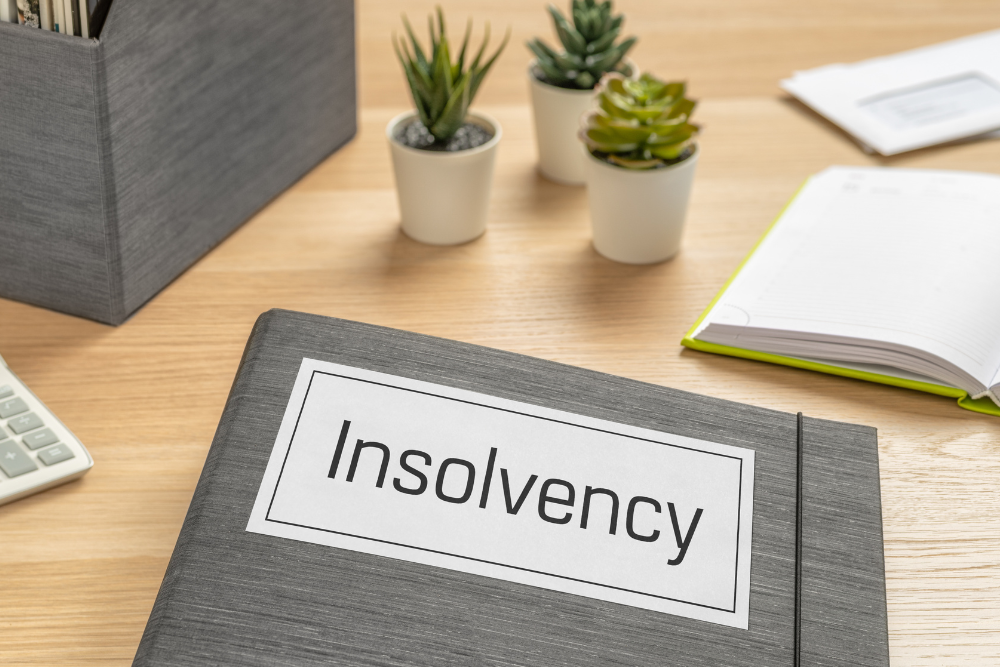Insolvency Practitioner - Truths
Insolvency Practitioner - Truths
Blog Article
Insolvency Practitioner Things To Know Before You Get This
Table of ContentsThe 8-Second Trick For Insolvency PractitionerThe 10-Second Trick For Insolvency PractitionerUnknown Facts About Insolvency PractitionerIndicators on Insolvency Practitioner You Need To KnowThe Definitive Guide for Insolvency Practitioner
Whether you need to use a bankruptcy professional (IP) to liquidate your company depends upon numerous aspects. While involving an insolvency practitioner for all kinds of liquidation is not a lawful requirement, doing so can often simplify the process and make sure conformity with legal demands. Liquidating a firm is a crucial choice that includes considerable consequences.
It is a treatment made use of when a firm does not have any financial institutions, or all of their financial institutions can be repaid completely with legal passion. Recognizing the various sorts of bankruptcy procedures can help you determine the ideal training course of action for your business's liquidation or various other formal insolvency procedures itself.
This is obligatory in order to follow legal demands - Insolvency Practitioner. This is due to the fact that IPs have the necessary qualifications and experience to make certain that the liquidation process is carried out based on all suitable laws and laws. By engaging an accredited bankruptcy specialist, you can have comfort understanding that your business's liquidation process will be handled professionally and in conformity with the appropriate legal demands
Some Of Insolvency Practitioner
The insolvency professional is assigned as a liquidator and is accountable for taking care of the firm and liquidator's financial debts exceptional obligations and assets. This procedure entails selling the business's possessions and dispersing the earnings to creditors. Upon conclusion of the process, the business is eliminated from the register at Companies House.
Stopping working to do so can result in individual obligation for the firm or director for the creditor's debts. Volunteer liquidation, which includes Lenders' Volunteer Liquidation (CVL) and Members' Volunteer Liquidation (MVL), is started by the company's directors and investors when they can no more pay their financial obligations. In a CVL, the insolvency professional is marked as the liquidator, in charge of taking care of firm financial obligations and all business possessions.

What Does Insolvency Practitioner Mean?
By examining the know-how and experience of prospective insolvency specialists, you can make sure that you select a practitioner that has the essential qualifications to manage your business's liquidation procedure efficiently. While bankruptcy practitioner-led liquidation is commonly the most suitable course of activity for business facing insolvency, there are different strategies to take into consideration, such as striking off and partial liquidation.
It's necessary to review all offered options prior to choosing on the next best remedy or strategy for your service. Striking off business' registers is a more straightforward and affordable way to close dormant or small companies without financial debts or assets. To strike off a firm, its name is gotten rid of from the Companies Home register by submitting kind DS01.
Prior to going with striking off, it's important to weigh the advantages and downsides of this technique and consider whether it's the right choice for your service. Partial liquidation is another option to insolvency practitioner-led liquidation, in which a firm liquidates certain possessions and responsibilities while remaining to run with the continuing to be properties and responsibilities.
A Bankruptcy Expert will certainly have the ability to recommend you of the best training course of action to take and make certain that everything runs smoothly. It is not feasible to liquidate a business without a liquidator. Selecting an authorized bankruptcy practitioner is required for the procedure of voluntary liquidation to start.
Insolvency Practitioner for Dummies
It is possible to close and liquidate your company without using a liquidator, supplied your company is solvent and you satisfy the eligibility demands to liquify or liquidate it. Nonetheless, if your company is financially troubled, you may be called for to utilize a liquidator and start official insolvency treatments. Here are some various other informative short articles regarding firm liquidation in the UK:.
Remaining in a setting where you're incapable to pay your firm's lenders is very difficult. In an effort to avoid raising the level of financial obligation, several firms try to negotiate directly with their financial institutions and consent to a casual plan. If the debt is fairly small and owed to one financial institution, and the creditor is being cooperative, participating in an casual financial obligation plan is internet possibly the very best option, instead than searching the web for 'an insolvency expert near me'.
On the read review other hand, if there are multiple lenders and the level of debt is big, lenders might not be so eager or participating. To avoid liquidation or insolvency, it is much better to employ an insolvency specialist to attract up official propositions and bargain with lenders on your behalf.
Our Insolvency Practitioner PDFs
Whilst it is a means to manage debt, there are substantial threats included with this type of debt arrangement - Insolvency Practitioner. If a lender agrees to become part of a casual click here for more info setup (IA) wherein the debtor has accepted make normal, if reduced, payments to repay the debt, it is very important to stay with the agreement

Consequently, the financial institution is within their rights to revoke the arrangement and application the courts for your company to be liquidated any time. A formal plan that has actually been suggested by a bankruptcy specialist on your part, and agreed by a financial institution, offers a much more secure option.
Report this page